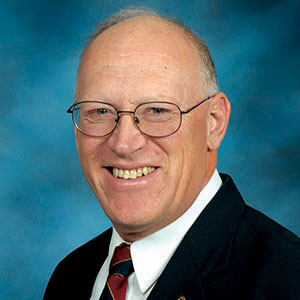Kansas Profile – Now That’s Rural: Dawn Halla, Oskaloosa Flower Farm
At a glance: Dawn Alexander Halla loves growing flowers. She moved to Kansas to help her daughter care for grandchildren and launched a flower farm in Oskaloosa. Having noticed how holistic land management benefitted animals at her previous home, she is researching regenerative agriculture in her flower farming operation.
More information: Ron Wilson, rwilson@ksu.edu, 785-532-7690
Photos: Ron Wilson | Dawn Alexander Halla
Website: Huck Boyd National Institute for Rural Development
April 3, 2024

By Ron Wilson, director of the Huck Boyd National Institute for Rural Development at Kansas State University
“You raise me up…” say the words of a popular song by Josh Groban.
 Those words would also be an appropriate way of describing a rural Kansas woman who is raising flowers with the goal of raising the spirits of her customers.
Those words would also be an appropriate way of describing a rural Kansas woman who is raising flowers with the goal of raising the spirits of her customers.
At right: Dawn Alexander Hall | Download this photo
Dawn Alexander Halla is the founder of Oskaloosa Flower Farm in Oskaloosa. She has had a long journey to Kansas. Originally from Trinidad, she married a man from Maine. They lived for a time in Ireland. Their daughter married a man from Kansas.
Unfortunately, the daughter came down with Crohn’s disease and was trying to care for her baby at the same time. The Kansas in-laws asked if Halla would move to Kansas to help the family. She chose to move and the family ultimately settled in Oskaloosa near her grandchildren.
While living in Ireland, Halla had worked as a horse trainer and noticed that holistic land management seemed to help the health of the horses. When she got to Kansas, she decided to apply those principles in raising flowers.
“I love flowers,” Halla said. “I love the connection with the earth.” Her goal is to use permaculture systems and practice regenerative agriculture.
“The idea is leaving the land better than you found it by managing the land holistically,” Halla said. She hopes to improve the soil profile by building natural bacteria and microbes in the soil.
Many consumers are interested in local foods. Halla points out the benefits of local flowers as well.
Many flowers must be shipped long distances to get from growers to the ultimate end users. “A lot of flowers are shipped in and need to be sprayed for pests,” Halla said. She seeks to raise flowers that are popular but are difficult to ship, so it is a win-win situation when they can be grown locally.
“I love growing unusual flowers and flowers that are hard to ship,” Halla said. Lisianthus, zinnias, and ranunculus would be examples.
“The lisianthus is an incredibly beautiful flower,” Halla said. It is sometimes called the “super rose.” Ranunculus is another one that looks like a fancy rose.
“I’m going through an experimental phase,” Halla said. “I’m working on perennializing lisianthus.”
Oskaloosa Flower Farm recently received an Environmental Quality Incentives Program grant (known as EQIP) from the U.S. Department of Agriculture to build a high tunnel. She currently sells her flowers at local supermarkets and farmer’s markets. Eventually she hopes to have a you-pick operation.
“My goal would be that florists could also come to the farm for flowers they could use,” Halla said. She also plans to operate a mobile farm stand in 2024.
“Our locally grown flowers tend to last longer,” Halla said. “Then there are sweet peas which don’t last as long but have wonderful scent.”
“It’s lovely seeing incredibly beautiful flowers grow from the tiniest seed. I want to have phenomenal flowers and have them in as many homes as possible. They can brighten someone’s day or week.”
Halla has other creative ideas as well. “What if you could have an edible bouquet of flowers?” she said. “You could have pretty flowers and, if you wish, you could pluck off a petal and add it to your salad.”
Her plan for this spring is to have her grandchildrens’ school classes come to the farm. “We live on a beautiful piece of property,” Halla said. “The children could pick flowers for their mums for Mother’s Day.”
“Flowers can lift people’s mood so dramatically. I love seeing the joy that flowers bring to people.”
It is good to find this floral entrepreneur in a rural community such as Oskaloosa, population 1,110 people. Now, that’s rural.
For more information about this ruralpreneur, look for Oskaloosa Flower Farm on Instagram.
You raise me up. Those are the words of a popular song, and they also describe the effect of this ruralpreneur’s flowers on her customers.
We commend Dawn Alexander Halla for making a difference by caring for the land while producing beautiful flowers in this way. The results give me a lift.
Audio and text files of Kansas Profiles are available at http://www.kansasprofile.com. For more information about the Huck Boyd Institute, interested persons can visit http://www.huckboydinstitute.org.
***

K‑State Research and Extension is a short name for the Kansas State University Agricultural Experiment Station and Cooperative Extension Service, a program designed to generate and distribute useful knowledge for the well‑being of Kansans. Supported by county, state, federal and private funds, the program has county extension offices, experiment fields, area extension offices and regional research centers statewide. Its headquarters is on the K‑State campus in Manhattan. For more information, visit www.ksre.ksu.edu. K-State Research and Extension is an equal opportunity provider and employer.